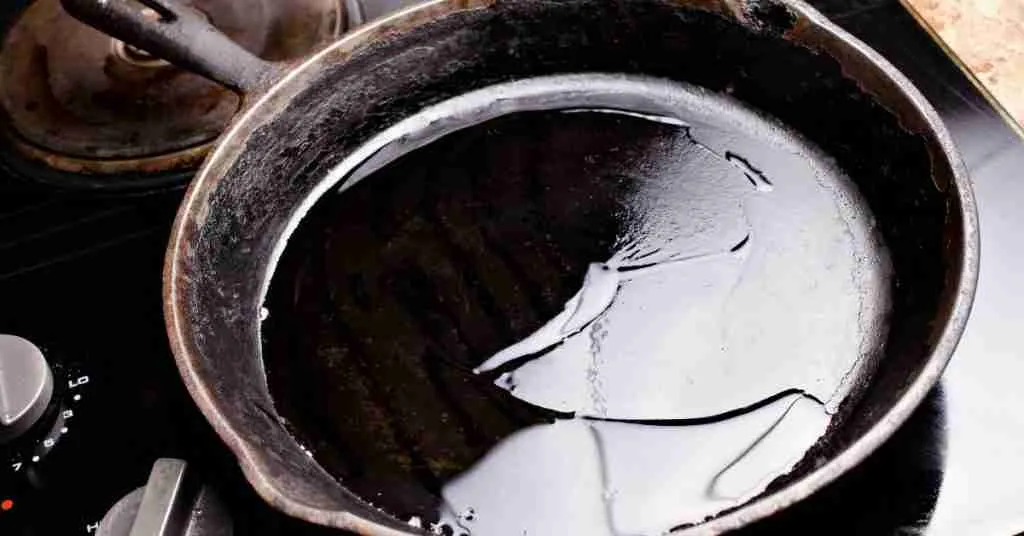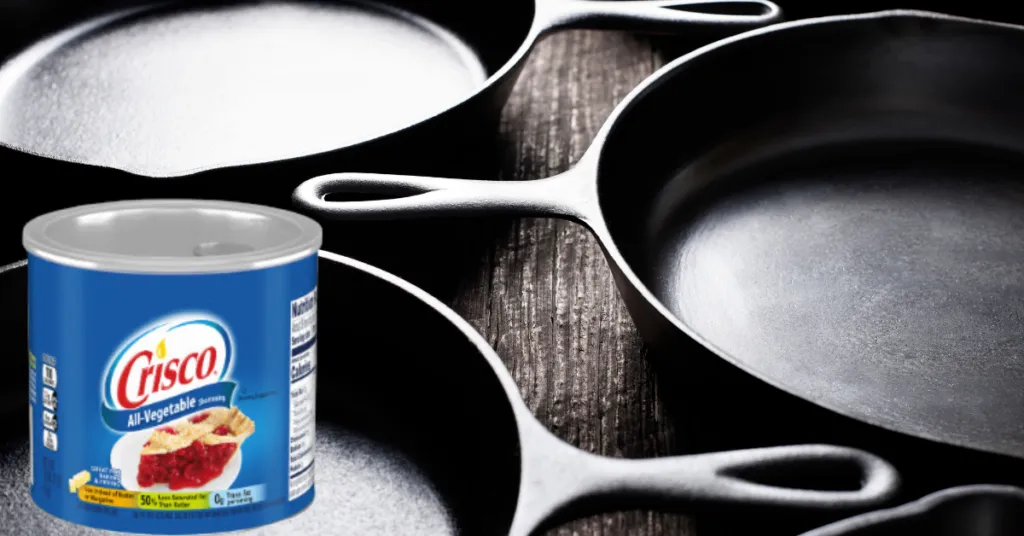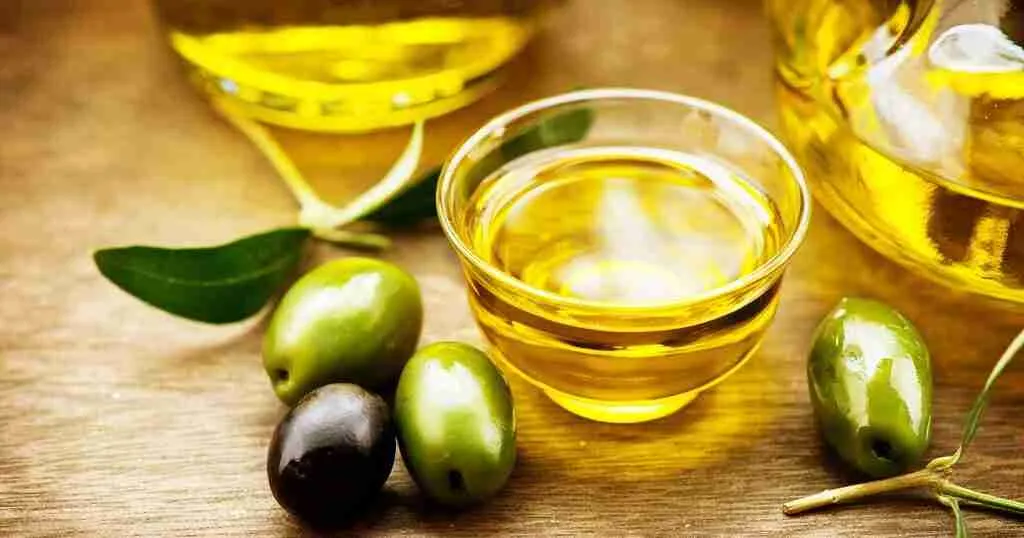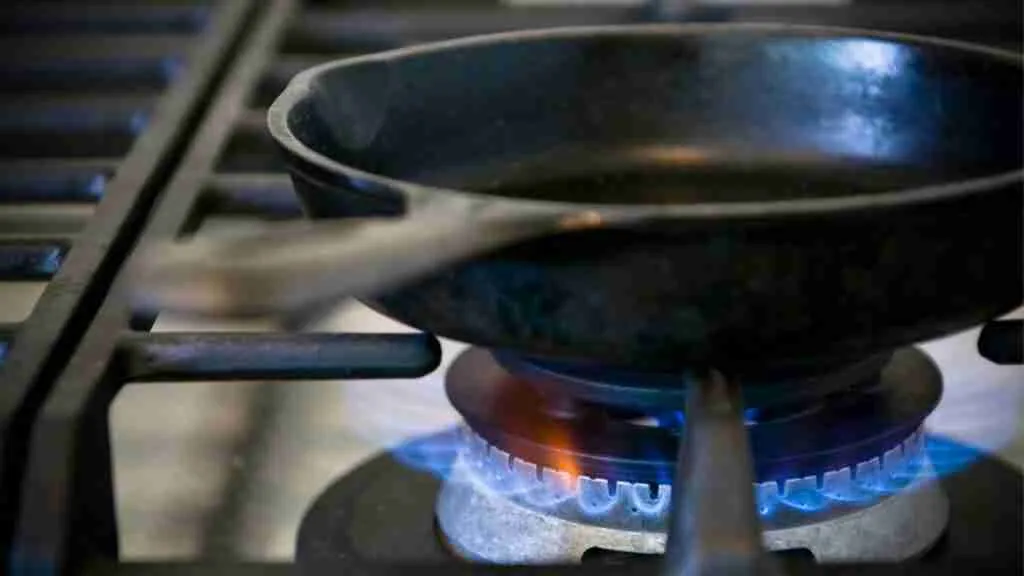If you’ve ever seasoned a cast iron pan, you know that the process can be kind of confusing.
There are many different oils out there, and it’s hard to know which one is the best without some guidance.
Some are better for cast iron cooking and others for seasoning oil.
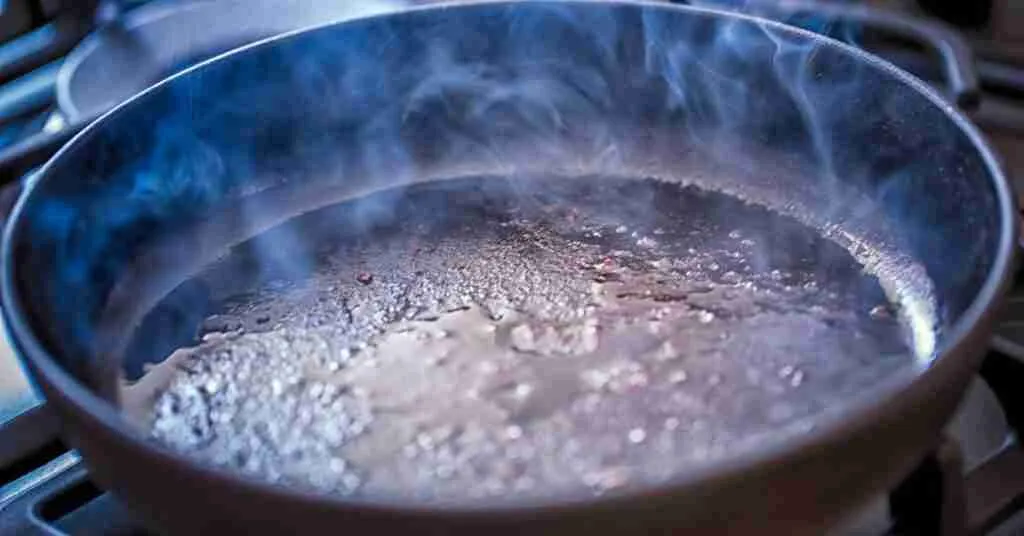
Table of Contents
Understanding Seasoning
When you first get a cast iron pan, it’s important to season it properly.
This means coating the entire surface of the pan with oil and baking it in the oven.
This process helps to create a non-stick surface and prevents the formation of rust.
Why Seasoning Is Important
Seasoning is crucial because it gives the pan a durable, non-stick coating.
A well-seasoned cast iron pan will last for generations and help you produce delicious meals.
For many cooks and chefs, cooking in cast iron is the only way to produce quality meals.
However, there is more to cast iron than simply cooking in it.
The seasoning and maintenance process is not always straightforward. Yet, with just a little guidance, it is not all that complicated either.
Choosing the right oil is essential for seasoning
The clean-up process after cooking such a great meal will be, too!
What Oil Should Not Be Used On Cast Iron?
Let’s address this misconception first! Some have touted flaxseed oil as the best oil to season cast iron.
I’m here to tell you that the best oil for cast iron seasoning is NOT flaxseed.
Some people sware by flaxseed oil because they say it is scientifically proven to create a better ‘seasoned’ finish, but in reality, it’s not the BEST choice as a cast iron seasoning oil.
The History Of Flaxseed Oil And Cast Iron Seasoning
Flaxseed oil has been used for centuries for various purposes. It was initially used as an industrial lubricant, but people soon began to realize its potential as a food oil.
Today, flaxseed oil is most commonly used as a dietary supplement. Some believe it has health benefits, such as reducing the risk of heart disease and cancer.
However, there is no scientific evidence to support these claims.
Some people believe it is the best oil for seasoning
What proof do we have? First, I will say the “proof is in the pudding,” so to speak.
Why Flaxseed Oil Should Not Be Used For Cast Iron Seasoning

Flaxseed oil is not ideal for seasoning a
Because of the very low smoke point, when heated to high temperatures, the oil will begin to break down and produce a lot of smoke.
Over time, the patina’ or the (shiny black look) will start to fade and chip.
Chipping or flaking is a common problem with flaxseed oil, as many cast iron users have learned…the hard way.
Flaxseed oil is expensive and may be difficult to find in some grocery stores, so it’s not a practical choice for seasoning cast iron.
Because of these reasons, flaxseed oil is NOT the best oil for seasoning cast iron.
To get a lasting base of seasoning on your
Why Is Flaxseed Oil Used To Season Cast Iron?
Cast iron dealers, resellers, and restorers use flaxseed oil to season cast iron. Not all, but many do.
But why?
Many of these restorers and resellers use flaxseed oil to season cast iron because it is a quick way to get a “pretty black” finish.
Flaxseed oil polymerizes quickly, dries quickly, and forms a durable coating. However, this also means it is prone to burning and has a low smoke point.
This means that, although it may not be the best choice for seasoning
What Is Polymerization
Polymerization is the process of combining smaller molecules into larger, more complex molecules.
In cast iron seasoning, polymerization helps the oil form a durable, protective coating on the metal.
The polymerized oil will help protect the cast iron from rusting and damage from food acids and moisture.
That is a good thing. But not with an oil that has a very low smoke point.
Smoke Points

What exactly is this smoke point we are talking about?
All oils have a smoke point, the temperature at which the oil starts to smoke and break down.
When the oil breaks down, it releases free fatty acids and other compounds, which can reduce the non-stick properties of a cast iron pan.
Rust can also form on your
For this reason, choosing an oil with a high smoke point is essential not only for frying or other high-heat cooking methods like searing a steak but especially for seasoning cast iron.
What Oil Has The Highest Smoke Point?
Refined
Avocado Oil

Avocado oil has an incredibly high smoke point, higher than any other cooking oil options on this list. The smoke point of
This makes
When combined with a rigorous seasoning process,
Lard & Bacon Grease
Lard

Lard is rendered animal fat, usually from pork but also from other animals.
Lard has a smoke point of 374°F, which means it’s excellent for low—and medium-heat cooking, such as frying, and is very good for seasoning cast iron.
My grandma used lard to season her cast iron. The old timers of years ago mainly used lard because that’s all they had.
If you cook with cast iron, lard is an excellent option for seasoning your pan.
Unlike other oils, lard has a high saturated fat content so it won’t go rancid as quickly.
Best of all, lard adds a rich flavor to food that other oils can’t match.
So the next time you need a good oil to season your cast iron, reach for the lard!
Bacon Grease
One of my favorites, many of you know, is bacon grease.

Bacon makes everything better! Bacon is smoked-cured or salt-cured pork, and when it is fried, it renders pure gold grease.
Bacon has a smoke point similar to pure lard of about 375°Farenheit and can be used similarly to lard for cast iron seasoning.
Plus, bacon grease adds a delicious flavor to fried foods, such as French fries and chicken.
In addition, bacon grease is relatively inexpensive and easy to obtain. Fry some bacon, save the bacon fat after cooking, and store it in a jar or container in your fridge.
Be sure to filter the grease through a paper towel or coffee filter first to separate any lingering bacon bits before storing it away, or the oil could become rancid.
Then, when you’re ready to season your pan again, pull out your saved grease can or jar and apply a thin layer of bacon grease.
Rub it all over the cast iron and wipe it with a soft cloth or paper towel.
Next, heat the pan over medium heat until it begins to smoke. Once the pan is seasoned, you’re ready to start cast iron cooking again!
Beef Tallow
Beef fat or tallow is another type of animal fat popular in cooking and seasoning cast iron, too, because it has a higher smoke point at 420ºFarenheit.
Crisco

Crisco is one of the best options for baking pie crusts and seasoning cast iron.
That’s because it’s made from 100% vegetable oil, so it won’t go as rancid as other oils can.
The Crisco shortening smoke point is 490 degrees, so it will not burn when you season your pan.
And last but not least, it’s cheap!
So, if you’re looking for an affordable option for seasoning your cast iron, look no further than Crisco.
Vegetable Oil

While many oils can be used for seasoning, vegetable oil is a popular option because it is relatively inexpensive and easy to find.
Lodge recommends vegetable oil, and all their cast iron skillets and other cookware come pre-seasoned from the factory.
They say that since it is pre-seasoned and not raw cast iron, you don’t necessarily have to season your cast iron before using it if you don’t want to.
Take it out of the box, wash it with dish soap, rinse well, dry thoroughly, and start cooking!
But, if you decide to season a new piece of cast iron, rub a thin layer of oil over the entire surface using a paper towel or cloth.
Then, place the pan in a preheated oven and bake it for at least one hour.
After the pan has completely cooled, it will be ready to use.
Grapeseed Oil

There are a lot of reasons you to love grapeseed oil for cast iron seasoning and maintenance.
Grapeseed oil has a high smoke point of 420°, which makes it ideal for roasting and stir-frying.
It also has a neutral flavor that won’t overpower your food. And last but not least, it’s packed with healthy antioxidants.
But did you know that grapeseed oil can also be used to season cast iron?
That’s right – this versatile oil can help keep your cast iron pan in top condition.
When used regularly, grapeseed oil helps create a non-stick surface on the pan while preventing rust.
And best of all, it’s super easy to use.
Seasoning your cast iron with grapeseed oil is a great way to keep it looking and performing like new.
Canola Oil

Canola oil is a versatile cooking oil used for various purposes. One of the most popular uses for canola oil is seasoning cast iron.
Canola oil is an excellent choice for seasoning because it has a high smoke point. The ideal temperature for cast iron seasoning is 400 degrees Fahrenheit, and canola doesn’t leave behind a greasy residue.
Additionally, canola oil is relatively inexpensive and easy to find in most supermarkets.
Ghee

Ghee is a type of clarified butter traditionally used in Indian cooking. It is made by simmering butter until all the water has evaporated and the milk solids have settled into the bottom of the pan.
The clear, golden liquid that remains is ghee. Ghee has a high smoke point of about 465º and a rich, nutty flavor, making it ideal for sautéing and frying.
Ghee is also often used as a seasoning for cast iron pans, helping to create a non-stick surface. It can be stored at room temperature for up to six months or in the refrigerator for up to a year.
Peanut Oil

Peanut oil is a vegetable oil extracted from peanuts. It is high in monounsaturated fats and low in saturated fats.
Peanut oil is often used for cooking. Its high smoke point of 450 degrees Fahrenheit makes it an ideal choice for seasoning cast iron pans.
In addition to its high smoke point, peanut oil has a neutral flavor, which means it will not impart any unwanted flavors to your food.
*This may not be a good option for you to use if someone has a peanut allergy.
Coconut Oil

Coconut oil is known for its many cooking uses, but did you know it can also season cast iron?
When used correctly, coconut oil can create a smooth, non-stick surface that is perfect for cooking. Plus, it adds a subtle hint of coconut flavor to your food.
To season your cast iron with coconut oil, coat the pan with a thin layer of oil and heat it over medium heat until hot. Then, turn off the heat and allow the pan to cool completely.
Coconut oil will polymerize and create a durable non-stick surface. This method can be used for any
It has a smoke point of 350 degrees.
Olive Oil

Extra Virgin Olive Oil
Is olive oil good for seasoning cast iron?
While extra virgin olive oil is excellent for many things, seasoning a
For starters, extra virgin olive oil has a relatively low smoke point of 350 degrees.
This is not that bad, but olive oil is quite expensive, and other vegetable oils are cheaper and will do just as good of a job at seasoning your skillet.
So, while you may be tempted to use that bottle of extra virgin olive oil in your pantry, it’s probably not the best vegetable oil for seasoning your
What Is The Best Way To Season Cast Iron?
Several methods exist for seasoning cast iron, but the most common is to coat the cookware in oil and bake it in the oven for at least an hour.
The best way to season cast iron is in the oven, but another (quick) method is on the stovetop.
I’ve also seasoned cast iron on a gas grill and have even done it on an open fire pit.
However, if you are using the oven, once the stove is hot, apply a thin layer of oil to the entire cookware surface. Then, wipe any excess oil with a paper towel.
Do not leave any excess oil or allow the oil to pool, as this will make the skillet sticky.
This can be easily fixed, but it is best to eliminate this potential problem initially.
Next, place the pan upside down on the middle rack and bake for at least one hour. Remove it from the oven and let it cool.
Repeat this process 2-3 times to establish a base layer of seasoning.
After each use, wash the skillet, dry it well, and place it on the burner to completely remove any moisture.
Wipe the pan with oil using a soft cloth or paper towel and lightly grease it before storing.
Over time, you’ll develop a patina that will produce a non-stick cooking surface without excessive oiling.
Should You Oil Your Cast Iron After Every Use?
Yes, it is necessary to oil your cast iron after each use. But if you’re like most people, you probably haven’t considered the care and maintenance of your
After all, it’s just a simple piece of metal, right? Wrong. Cast iron is a strong and durable material that requires special treatment to keep it looking and functioning at its best.
One of the most important things to remember is to oil your cast iron after every use. This will help to prevent rust and ensure that your cookware retains its natural non-stick properties.
Do You Oil Cast Iron Hot or Cold?
When seasoning cast iron, it is essential to add the oil while the skillet is warm to the touch so the pores can open up and absorb the oil.
Once the oil has been added, it is important to spread it evenly over the skillet’s surface. After the skillet has been seasoned, it should be stored in a dry place to prevent rusting.
Can You Put Too Much Oil On Cast Iron?
Yes, you can. Too much oil can make the surface of your cast iron sticky.
Whatever oil you use, you should only add a thin layer to your
Wipe as much off as possible before baking, and your cast iron will look much better and be less sticky.
How Many Times Should You Season Cast Iron?
So, how many times should you season cast iron? Once? Twice? Every time? Ideally, you should season your
It’s also necessary to lightly oil your
In general, the more often you season your cast iron, the better. But ultimately, the decision is up to you and your available time.
However, if it’s not possible or practical to do it two or three times a year, do it at least once a year.
The more often you season your cast iron, the better it will perform, the prettier it will look, the deeper the seasoning will be, and the longer it will last.
What Is The Best Oil For Seasoning Cast Iron?
What oil is best for seasoning cast iron?
The best oil for seasoning cast it on is avocado oil. Choosing the right oil depends on you. I suggest choosing one that is readily available, affordable, effective and has a high smoke point, and avocado oil is that one.
What oil should not be used on cast iron?
Although flaxseed oil has been touted as the best, I don’t recommend it because it tends to flake off. Never use motor oil, or WD-40 either.
Following these general guidelines in the cast iron seasoning process and caring for your cast iron properly after it is seasoned can ensure that it will remain in great shape for many years. If you have other questions, be sure to check out our frequently asked questions page for more practical tips and tricks.
